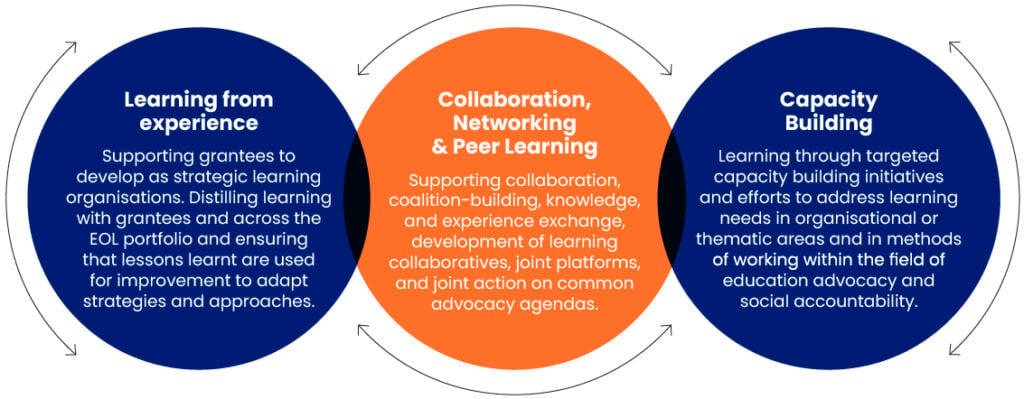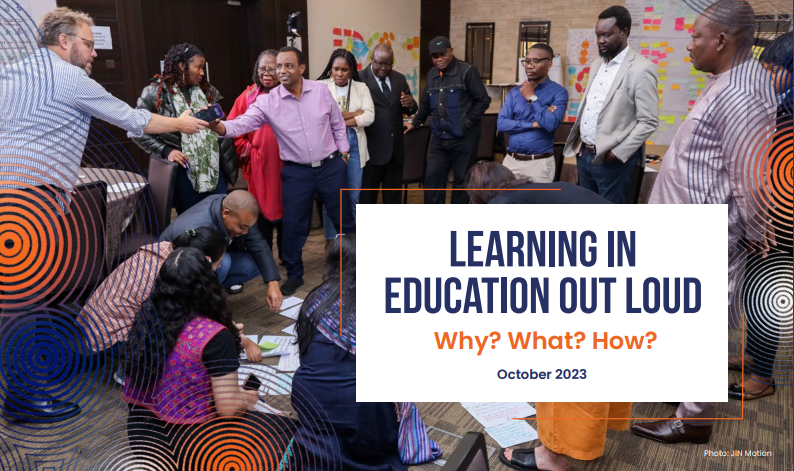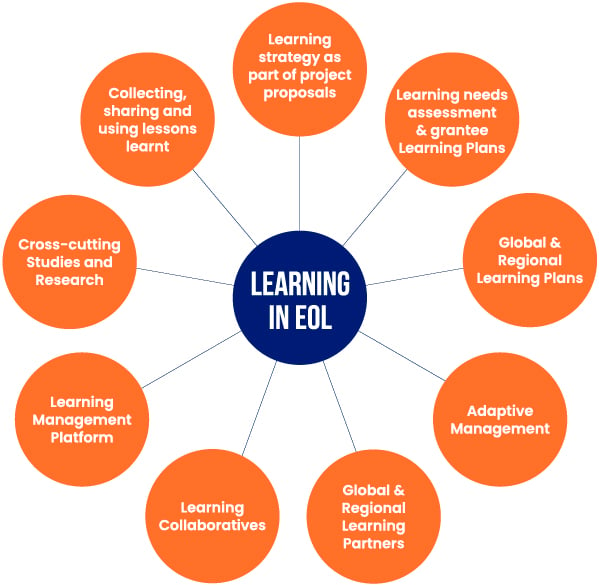Learning
Education Out Loud aims to reinforce civil society organisations and alliances’ capacity to participate in and influence education policy dialogue. We also contribute evidence-based knowledge of civil society’s impact as a global public good to inform practitioners and stakeholders in their efforts to improve education policy and implementation.
Strengthening civil society capacity is an end in itself. By embracing learning throughout, Education Out Loud adds value and contributes to stronger, more strategic, and relevant, institutionally healthy, and sustainable civil society organisations, coalitions and alliances. This is done to strengthen their influence on the right to public, quality education for all, and strengthen transparency, social accountability, and civil society engagement in education policy dialogue.
Read more in the publication: Learning in Education Out Loud – Why? What? How?
A wider aim of Education Out Loud learning efforts is to share lessons from the implementation with the wider education community, contributing knowledge as a global public good to inform practitioners, funders, and country level stakeholders in efforts to improve the inclusiveness, transparency and effectiveness of education sector policy and implementation. Education Out Loud therefore provides a set of learning opportunities and facilities to promote learning throughout.
Key components of learning are Learning Collaboratives that bring grantees together to ensure synergy, exchanging strategies and lessons learned and the cooperation with Learning Partners who do strategic research on central themes and across the entire portfolio of Education Out Loud grantees and work to ensure that research-based findings contribute to the sharing of EOL-related learning as global public goods.
Education Out Loud works with learning to…
- Inform and improve the practices of EOL grantees and related civil society organisations to enhance their effectiveness and strategic impact on education policies, their implementation and social accountability throughout the education sector.
- Inform and influence the practices of the wider stakeholder group around education advocacy and accountability including the GPE secretariat/partners, International and national NGOs such as Oxfam, ministries of education and other decision-makers at national and regional levels in relation to civil society.
Education Out Loud facilitates learning using three interlinked approaches
- Learning from experience
- Collaboration, Networking and Peer Learning
- Capacity Building

A variety of learning elements are implemented throughout the Education Out Loud programme cycle
- Learning Strategy as part of project proposals
- Learning needs assessment & grantee Learning Plans
- Global & Regional Learning Plans
- Adaptive Management
- Global & Reginal Learning Partners
- Learning Collaboratives
- Learning Management Platform
- Cross-cutting Studies and Research
- Collecting, sharing and using lessons learnt


